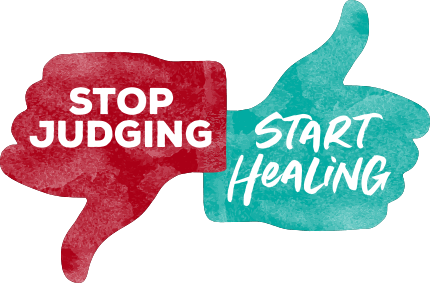WHY LANGUAGE MATTERS
The language we use when referring to people speaks volumes about how we think about them. And how we think about things impacts our attitudes and approaches to addressing them. Calling someone an “addict” or “crazy” not only reduces them to just that, it also increases negative perceptions that influence the value of our social and public health policies.
Person-first language puts a person before a diagnosis, describing what a person “has” rather than asserting what a person “is.”
Person-first language is humanizing. When we use terminology like “addict” or “crazy,” we may unknowingly begin to objectify the person and strip away their individuality. This often reduces the person into a predetermined box that discriminates.
By placing the person first, the person is what is important. Addiction or mental illness is no longer the primary, defining characteristic of an individual, but one of several aspects of the whole person. We must speak, write and think in a way that acknowledges the human being first, rather than their condition or disease.
Person-first language puts a person before a diagnosis, describing what a person “has” rather than asserting what a person “is.”
Person-first language is humanizing. When we use terminology like “addict” or “crazy,” we may unknowingly begin to objectify the person and strip away their individuality. This often reduces the person into a predetermined box that discriminates.
By placing the person first, the person is what is important. Addiction or mental illness is no longer the primary, defining characteristic of an individual, but one of several aspects of the whole person. We must speak, write and think in a way that acknowledges the human being first, rather than their condition or disease.
